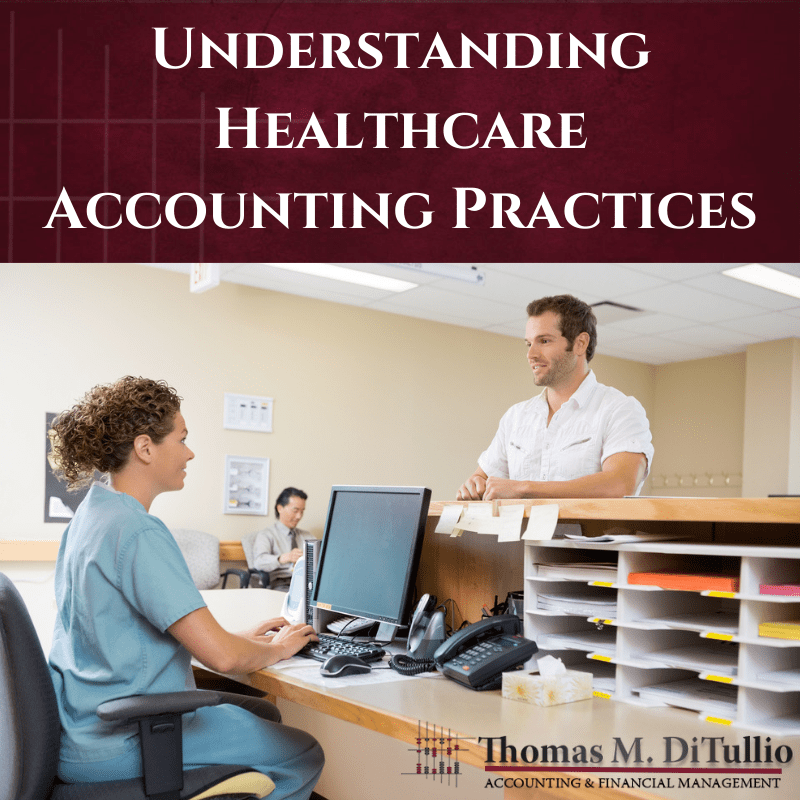Understanding Healthcare Accounting Practices
Knowing the fundamentals of hospital accounting is important for several reasons. First, it can help the accounting team understand what systems are needed for record-keeping purposes. Secondly, accounting allows executives to invest in their facilities’ tools, equipment, and staff. As a result, accounting can help provide better healthcare for patients in the community.
Why Is Accounting Important in Healthcare?
There are many reasons why healthcare accounting is vital for the medical industry and the community. Accounting practices can impact the day-to-day operations of hospitals, medical offices, and healthcare facilities. Without the proper staffing or supplies, it can affect the staff’s ability to do their jobs.
How does accounting play into this scenario? With the proper accounting methods, administrators can set a budget to ensure that the medical staff can help their patients. The facility will have enough supplies and equipment to give proper medical treatment to their patients. Plus, there will be enough nurses, doctors, and other medical personnel on staff.
A healthcare budget goes beyond the necessary supplies, equipment, and staffing. When there is no budget in place, it can impact all aspects of healthcare. Patient satisfaction can be affected by poor accounting. If you cannot offer the proper services, they will go elsewhere for their healthcare needs.
Proper accounting can also impact the facility’s life. Any healthcare facility that doesn’t adequately monitor its money flow or set a budget will not be in business for long. Accounting helps to bill clients, process claims, and manage revenue cycles. Healthcare managers need to understand their accounting practices so that the facility can bring in revenue to support a long-term operation.
Accounting practices can also maintain compliance with regulatory agencies. Healthcare facilities need to follow strict guidelines and regulations, including specific tax laws. For example, the Internal Revenue Service specifies that Form 990 must be filed for each tax year. If the forms are not filed or have incorrect information, the facility could face fines.
Generally Accepted Accounting Principles (GAAP)
When establishing an accounting system for a hospital, that system must adhere to the Generally Accepted Accounting Principles (GAAP). There are universal rules of accounting that are used in many industries, including hospitals. All of these procedures and standards help maintain consistency in reports and statements. GAAP covers balance sheet classification, materiality, and revenue recognition. The goal of GAAP is to ensure financial statements are comparable, complete, and consistent. For seamless management, a few essential elements need to be followed. These principles include:
- Principle of Regularity – adhering to GAAP regulations and rules
- Principle of Consistency – applying the same standards for the reporting process
- Principle of Sincerity – providing an accurate and impartial depiction of a financial situation
- Principle of Permanence of Methods – giving consistent financial reporting
- Principle of Non-Compensation – reporting both positives and negatives without compensation
- Principle of Prudence – emphasizing fact-based financial data representation not clouded by speculation
- Principle of Continuity – assuming the business will continue to operate while valuing assets
- Principle of Periodicity – reporting revenue in its relevant accounting period
- Principle of Materiality – fully disclosing all accounting information and financial data in reports
- Principle of Utmost Good Faith – remaining honest in all transactions
Now that you understand GAAP, it is time to find the best accounting method. GAAP can help the medical facility’s planning, controlling, organizing, and decision-making processes. You can handle these accounting measures by yourself or hire a company specializing in small business accounting services to adhere to these principles.
In the healthcare industry, accrual accounting is the standard. With that, all expenses and incomes are recognized when they happen rather than when the funds change hands. Accrual accounting can accurately reflect the current financial health of the facility.
Medical Offices and Accounting
A proper accounting system is essential for the success of any medical office or healthcare faculty. When all of the guidelines by GAAP are followed, it can save money by eliminating any fines or charges. In addition to that, it can help boost the reputation of the medical office. The number one goal of a medical office is to treat the patient and deliver care that meets specific standards. A medical office needs to provide cost-effective treatment for the patients. Accounting helps patients receive exceptional care without breaking their budgets.
Accounting can help manage payments, income, expenses, and taxes with revenue cycle management. Without these funds, the medical office could not treat their patients. Revenue cycle management looks at payments, medical claims, and revenue generation. In other words, it manages the patient’s revenue cycle in the medical office. Accounting for medical offices focuses on:
- Collecting the co-pay
- Determining patient financial eligibility
- Collecting all payments
- Tracking claims
- Following up on denied claims
- Coding all billing correctly
You might think that all healthcare accounting is the same, but medical offices and hospitals have unique financial considerations.
Hospitals and Accounting
Hospitals have a few special considerations for their accounting needs, especially their accounts receivable. They can be paid by private insurers, patients, charitable organizations, or government programs. Payment terms can vary, and there are numerous ways to bill for services. All hospitals must track this money and allocate the payments to the proper accounts.
These hospitals also need to handle credits that can occur on an account. In some cases, the patient may have a credit due to a billing error, insurance claim adjustment, or overpayment of the bills. Hospitals must also use allowances to keep track of their accounting statements. An allowance is a separate line that adjusts revenue to what the hospital expects to collect from the bill. Accounting can organize all of the hospital’s revenue streams, credits, and billing.
Healthcare Accounting Is Complicated
While healthcare accounting is necessary, it can be challenging to do without the proper help. At TMD Accounting, we have been in business for over 40 years. Our accounting firm is a family-owned company that understands the needs of small and big businesses. If you are a healthcare facility, medical office, or hospital needing accounting, payroll, or tax help, we are there for you.
Need an accountant for your small business? Schedule a consultation at 856-228-2205.


